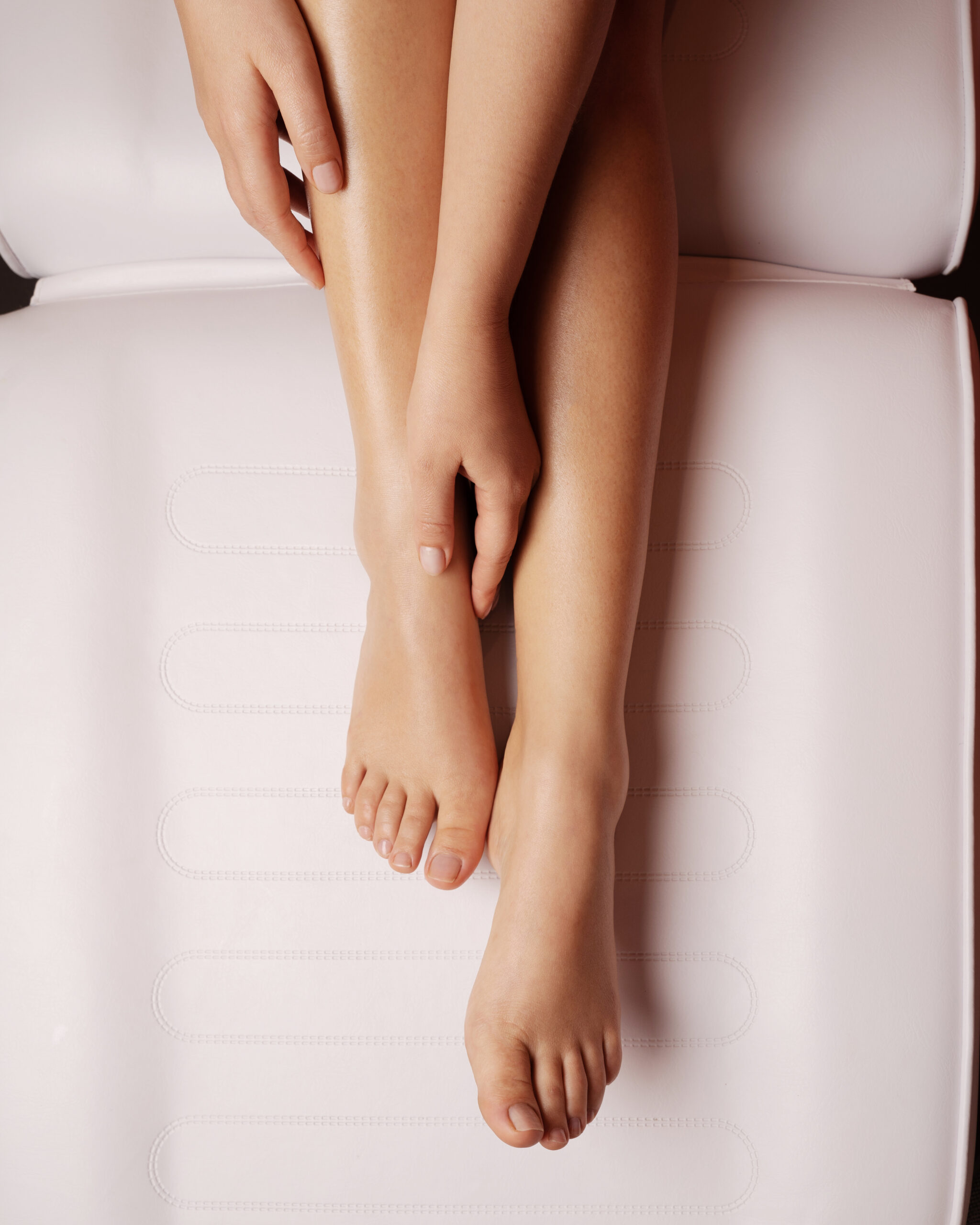Laser hair removal is one of the most sought-after beauty treatments for individuals looking to say goodbye to the hassle of traditional hair removal methods such as shaving, waxing, or tweezing. But one of the biggest questions that linger in the minds of many is, Is laser hair removal permanent? While laser hair removal provides remarkable and long-lasting results, it’s important to understand that it is not an instant permanent solution. Instead, it offers a significant reduction in hair growth over time with minimal maintenance.
In this comprehensive guide, we’ll answer all your burning questions about laser hair removal, its effectiveness, the factors influencing its results, and more. By the end, you’ll have a clear understanding of whether laser hair removal is the right solution for you and what you can expect from the process.
Understanding Laser Hair Removal
Laser hair removal is a process that uses concentrated light to target the pigment in hair follicles. The laser light is absorbed by the pigment in the hair, which damages the hair follicle, thus reducing its ability to grow new hair. While many people wonder, Is laser hair removal permanent, the reality is that it offers long-term hair reduction rather than a permanent solution.
Unlike traditional methods like shaving, waxing, and tweezing, which only provide temporary hair removal, laser hair removal reduces the overall density and growth of hair over a longer period of time. It can significantly slow down hair growth, but to keep your skin smooth and hair-free, follow-up sessions are usually required.
It’s essential to note that laser hair removal is not permanent in the sense that hair will never regrow. However, it offers long-lasting results compared to other hair removal methods, making it an ideal choice for many individuals seeking a more permanent solution than shaving or waxing. If you’re considering other beauty treatments alongside laser hair removal, you may also explore a professional hair salon for additional grooming and styling services.
How Long Does Laser Hair Removal Last?
When considering is laser hair removal permanent, it’s crucial to understand that its effectiveness varies depending on a variety of factors. While it does offer long-term reduction, the results are not guaranteed to last forever. Here are a few factors that influence how long your results will last:
Factors Affecting Longevity:
- Hair Type and Color: Darker, thicker hair responds better to laser treatment since the laser targets the pigment (melanin) in the hair. Lighter hair, such as blonde or grey, may not be as responsive, which means it might require more sessions to see significant results.
- Skin Tone: The contrast between light skin and dark hair helps the laser target the hair follicles more effectively. However, advances in technology have allowed lasers to be effective for individuals with darker skin tones as well.
- Treatment Consistency: One of the biggest factors in achieving long-lasting results is following through with the required number of sessions. Typically, people will see a 10-25% reduction in hair after each session. Sticking to a consistent schedule of treatments ensures the best possible outcomes.
- Laser Type: Different types of lasers are used for different skin tones and hair types. Some lasers are more efficient than others, and using the right laser for your needs can make a big difference in how long the results last.
While you may see a significant reduction in hair growth after a few sessions, it’s important to remember that laser hair removal is not a one-time, permanent fix. Follow-up treatments are often necessary to maintain smooth skin.
Who is the Best Candidate for Laser Hair Removal?
A common question when considering is laser hair removal permanent is whether the treatment will work for all skin and hair types. The answer is that certain characteristics make some individuals more ideal candidates for the procedure.
Best Candidates for Laser Hair Removal:
- Light Skin with Dark Hair: Laser hair removal is most effective on individuals with light skin and dark hair because the laser can easily differentiate between the pigment in the hair and the skin.
- Advancements for Darker Skin: Thanks to newer laser technology, individuals with darker skin tones can also benefit from laser hair removal. However, the process might take more time or require different lasers.
- Hormonal Factors: Certain hormonal changes, such as those caused by conditions like PCOS, can affect hair regrowth. Hormonal imbalances may lead to hair regrowth even after undergoing multiple sessions.
If you’re unsure whether you’re an ideal candidate, it’s always a good idea to consult with a professional to determine if laser hair removal is permanent for your specific needs.
Does Laser Hair Removal Hurt?
When it comes to is laser hair removal permanent, many individuals are concerned about the potential pain. The process is generally well-tolerated, with most people comparing the sensation to a rubber band snapping against the skin. However, pain levels can vary depending on your personal pain tolerance and the area being treated.
How Painful is the Treatment?
- The discomfort from laser hair removal is mild and usually short-lived.
- Numbing creams or cooling devices are often used to reduce any discomfort.
- Many people find that the treatment is less painful than waxing or epilation.
If you’re looking for a soothing experience after laser treatments, you might consider a facial treatment in Dubai to keep your skin rejuvenated and nourished.
Side Effects and Risks
While laser hair removal is generally considered safe, there are some potential side effects to be aware of. These risks are minimal, especially when the treatment is performed by a qualified professional.
Common Side Effects:
- Redness and Irritation: After treatment, it’s common to experience some redness and mild irritation, which typically resolves within a few hours to a couple of days.
- Temporary Skin Discoloration: Some individuals may experience temporary lightening or darkening of the skin in the treated area. This is generally short-lived and fades over time.
Rare Risks:
- Blistering or Burns: If the treatment is performed improperly or the laser settings are incorrect, there is a slight risk of burns or blisters. This is why it’s crucial to choose an experienced professional for the procedure.
- Scarring: In rare cases, scarring can occur, but this is more likely if the treatment is done incorrectly.
It’s essential to undergo the treatment at a reputable clinic with experienced professionals to minimize these risks and ensure the treatment is as safe and effective as possible.
How Many Sessions Do You Need?
You might be wondering, is laser hair removal permanent after just one session? Unfortunately, no. It typically takes 4-6 sessions spaced 4-6 weeks apart to see optimal results. Since hair grows in different cycles, multiple treatments are necessary to target all the hair follicles effectively.
Maintenance Treatments:
- After completing the initial sessions, many people require maintenance treatments every 6-12 months to keep the results intact and address any regrowth.
Certain areas of the body, such as the face or underarms, may require more sessions due to hormonal hair growth, so it’s important to follow the recommended treatment schedule for the best outcomes.
Alternatives to Laser Hair Removal
While laser hair removal offers long-lasting results, it is not the only option available for hair removal. If you’re considering is laser hair removal permanent and are looking for other alternatives, here are some options:
1. Electrolysis
- Permanent hair removal, FDA-approved, but more time-consuming and can be costly.
2. At-Home Laser Devices
- These devices are more affordable but are not as powerful as professional lasers, leading to potentially less effective results.
3. Traditional Methods (Shaving, Waxing, Sugaring)
- These methods are temporary and require frequent maintenance, but they remain accessible and affordable.
Despite these alternatives, laser hair removal remains one of the most effective and long-lasting options for those seeking permanent or long-term hair reduction.
The Best Place for Laser Hair Removal – Bedashing Beauty
When considering is laser hair removal permanent, it’s essential to choose a reputable clinic with professional, high-quality equipment. Bedashing Beauty offers state-of-the-art technology and a team of experienced professionals who prioritize your safety and comfort. With our commitment to exceptional service, you can trust us to deliver effective results with minimal risk.
If you’re looking for an all-in-one beauty experience, Bedashing Beauty also provides services like a best nail salon to keep your hands and feet looking flawless.
Experience long-lasting hair reduction and enjoy smooth, hair-free skin with the help of Bedashing Beauty. Book your laser hair removal consultation today and take the first step toward permanent hair reduction at Bedashing Beauty.
Note: Read our latest Blogs:
Laser Hair Removal Side Effects.
Frequently Asked Questions
Q1. Is laser hair removal permanent?
A1. No, while laser hair removal offers long-lasting hair reduction, it is not a permanent solution. Follow-up sessions may be necessary.
Q2. How many sessions are needed for effective results?
A2. Typically, 4-6 sessions are needed, spaced 4-6 weeks apart, with maintenance treatments every 6-12 months.
Q3. What are the side effects of laser hair removal?
A3. Common side effects include redness, irritation, and temporary skin discoloration. Rare side effects can include blistering or burns.
Q4. Can laser hair removal work on all skin tones?
A4. Yes, advances in technology have made it possible for laser hair removal to work on a wider range of skin tones, though it is most effective on light skin with dark hair.
Q5. Does laser hair removal hurt?
A5. It may cause mild discomfort, often described as a rubber band snap. Numbing creams and cooling devices can reduce discomfort.
Q6. Is laser hair removal safe for sensitive skin?
A6. Yes, it is safe for most skin types, including sensitive skin, when done by a professional with appropriate settings.
Q7. Can I use laser hair removal on my face?
A7. Yes, laser hair removal is effective on facial areas such as the upper lip, chin, and sideburns.
Q8. How soon can I see results from laser hair removal?
A8. You may notice a reduction in hair growth after the first few sessions, but optimal results typically take several treatments.




